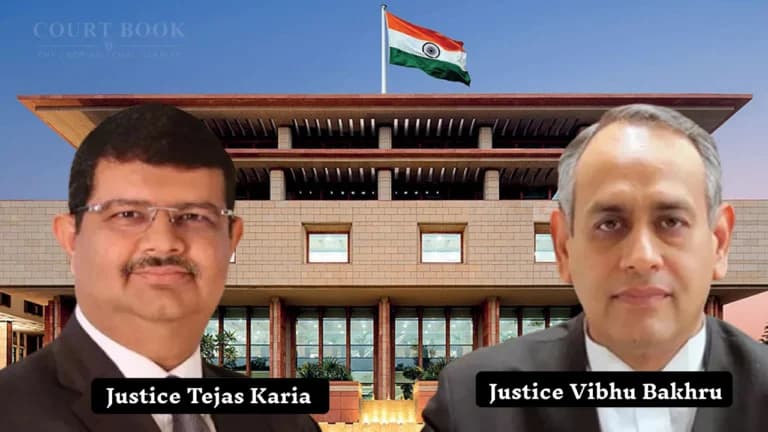The Delhi High Court has made it clear that the Assessing Officer (AO) is the final deciding authority under Section 148A of the Income Tax Act, 1961. Once the AO makes a decision on whether or not to reopen an assessment, that decision cannot be reversed merely because the Principal Commissioner of Income Tax (PCIT) has a different view.
This ruling was passed by a Division Bench comprising Justices Vibhu Bakhru and Tejas Karia in the case titled Baba Global Ltd v. Assistant Commissioner of Income Tax, Central Circle 29 & Ors. (W.P.(C) 1155/2024), on July 7, 2025. The Court quashed the reassessment proceedings initiated against Baba Global Ltd, observing that the AO’s revision of his original decision—declining to issue notice under Section 148—was without authority.
“The AO is a deciding authority. In the present case, it is apparent that the AO had decided that it was not a fit case for issuance of a notice under Section 148 of the Act but had, thereafter, revised the said decision apparently on the basis of an approval of the specified authority,”
—Delhi High Court
Background of the Case
Baba Global Ltd had filed its income tax return for the assessment year 2019–20, which was later revised. On 31 March 2023, the AO issued a notice under Section 148A(b), citing that certain bank remittances were not in line with the income declared. The company replied to the notice, offering explanations and relevant documentation.
On 27 April 2023, after reviewing the submissions and supporting documents, the AO passed an order under Section 148A(d), accepting the explanation and dropping the reassessment proceedings.
“The contentions of the assessee are examined and found tenable. In view of the above factual and legal position, the initiation of proceeding u/s 147 is not warranted in this case.”
—Order dated 27.04.2023 under Section 148A(d)
Read also:- Government Issues Notification on Transfer of 17 HC Judges Based on Collegium Proposal
However, hours later, another order was issued via email (received at 12:31 AM on 28 April 2023), where the AO now claimed that the case was fit for reassessment under Section 148. This was accompanied by a corrigendum treating the earlier decision as null and void.
The petitioner argued that:
- The AO has no legal authority to revise or review an order once passed under Section 148A(d).
- The reassessment notice issued under Section 148 was beyond the permissible time limit, making it invalid.
On the other hand, the Revenue claimed that the AO had corrected an error after realizing that the earlier decision contradicted the approval given by the PCIT for reopening the case.
The Court, however, disagreed.
“Clearly, this is not a case of an inadvertent typographical or clerical error… the AO had accepted the assessee’s explanation. The later decision contradicts the earlier one with fresh reasoning. This is contrary to law.”
—Delhi High Court
Read also:- Texting Abusive Language Doesn't Amount to Stalking Under IPC Section 354D: Karnataka High Court Rules
The Court also noted that the notice issued under Section 148 was beyond the limitation period prescribed under Section 149(1)(a) of the Act. The last date for issuing such a notice was 31 March 2023. Although some exclusions were available due to procedural timelines, the reassessment notice issued at 12:08 AM on 28 April 2023 did not meet the deadline criteria.
Referring to its earlier ruling in Raminder Singh v. Assistant Commissioner of Income Tax, the Court held that the issuance of reassessment notice was time-barred.
“It does prima facie appear that the procedure adopted by the AO is contrary to law.”
—Delhi High Court
The Delhi High Court allowed the writ petition, stating that the AO had no legal right to alter his own final order under Section 148A(d). Accordingly, the impugned reassessment notice and all related proceedings were quashed.
Case title: Baba Global Ltd v. Assistant Commissioner Of Income Tax, Central Circle 29 & Ors.
Case no.: W.P.(C) 1155/2024
Counsel for Petitioner: Mr. Ved Jain, Mr. Nischay Kantoor, Ms. Soniya Dodeja
Counsel for Revenue: Mr. Shlok Chandra, Ms. Nancy Jain, Ms. Madhavi Shukla















